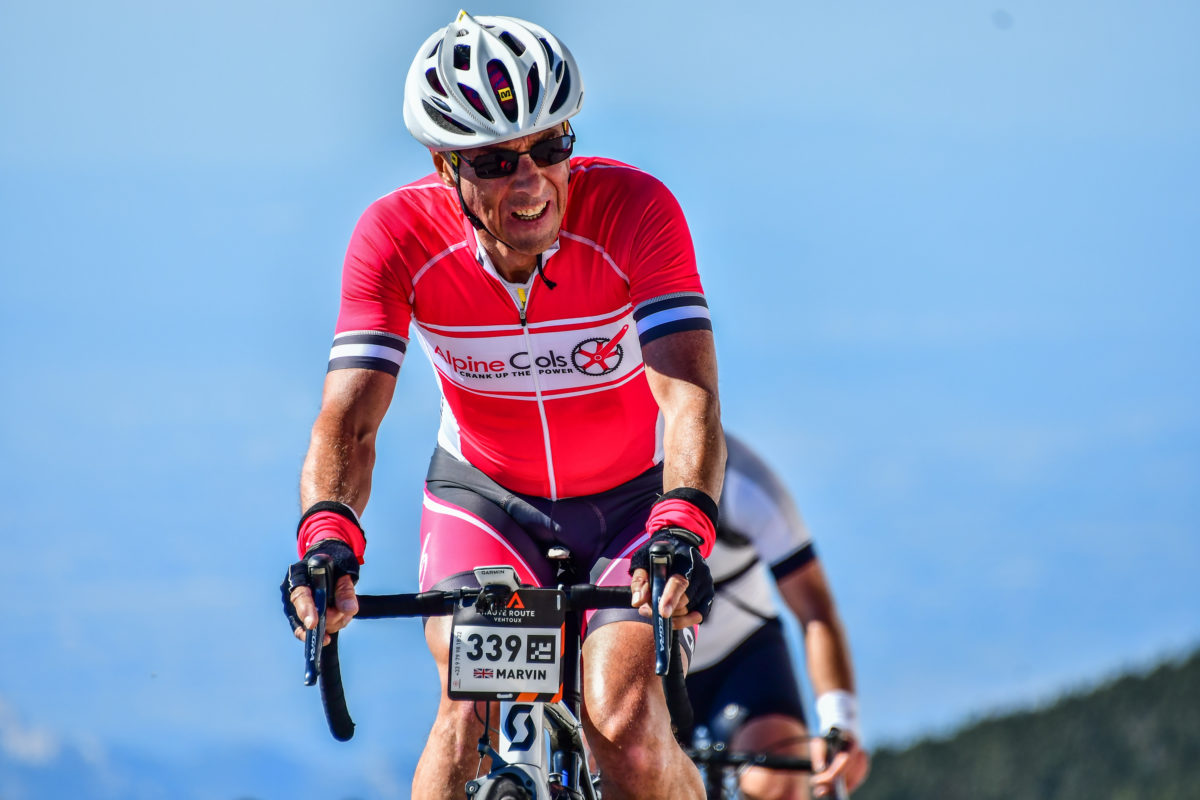
This is a cautionary tale. Sensitive souls should probably stop reading now!
2019 was an excellent year for me on the bike, so naturally I hoped to build on this and come out even stronger in 2020. My major goals for the year were the Marmotte and the Tour du Mont Blanc, both in July. My training through the early part of the winter went well, and my test numbers at the Alpine Cols training camp in Tenerife were very much in line with 2019.
Then came Covid-19 and the lockdown.
For 8 weeks we were not allowed to cycle outside, so my training had to be a mix of cycling inside on the turbo with strength & conditioning work off the bike. My goals for this period were to come out stronger. The strategy worked. (See Coming out of lockdown stronger)
Things were looking good!
The only shadow on the horizon when we came out of lockdown in mid-May was the total uncertainty for the events. This uncertainty never went away, as even the few events that were re-scheduled were subject to cancellation up to the last minute.
Nevertheless, I carried on training through the summer and eventually participated in three events, the Tour de l’Ain and the Cimes du Lac d’Annecy in August and the re-scheduled Marmotte at the beginning of September.
I thus had two months more than usual to prepare for these events, which normally take place in June and July. Should have been positive, right?
The results were, ahem, not quite what I hoped. In all three events I finished well behind people I would normally expect to beat. The Marmotte took me fully 30 minutes longer to complete than in 2019 (and I can’t blame the weather, which was perfect).
What went wrong?
My strength endurance disappeared. I lost my ability to repeat climbs at race pace – for me this means 85-90% of critical power on a sportive – as well as my ability to make short, hard efforts to stay with fast-moving groups.
Why? Well, it takes a lot of effort and motivation to develop these abilities. They don’t happen without clear goals and a plan to achieve them, and the peak doesn’t last. Peaking at the right moment is hard enough when the dates are fixed; it becomes harder still when the dates are uncertain.
I made things worse by embarking on a crash-course of several days of climbing at high-torque low-cadence in rapid succession. The result was an injury in my lower back and a head-smacking realisation (after talking it over with fellow-coach Silas) that this was entirely predictable… Why didn’t I think of this myself?
Looking back on my training now, it is easy to see that I should have reset my plan in order to peak at the beginning of September. This would have meant going back to base for a short period before entering the tough pre-competition block with real purpose. This is where self-coaching failed me: I didn’t challenge myself enough, and fell into a pattern of muddling along, doing what I felt like when I felt like it rather than sticking to a rigorous plan.
I should have been fired for coaching myself this way. This was not coaching. This is certainly not the way I and my Alpine Cols colleagues coach our clients.
How would a coach have helped?
The most basic part of a coach’s job is to understand the athlete and help them think through their future goals, where they are today, their opportunities to train and the constraints they face. The result is a plan created together. The process needs to be repeated as often as necessary to update the plan as events unfold. New constraints emerge; old ones evolve; the athlete responds well to the training, or doesn’t; niggles or injuries appear; goals need to be revisited. The two should be talking often: even short telephone calls are far more informative than written notes. Sometimes the coach needs to challenge the athlete to do more, sometimes it is about training differently, and sometimes the coach needs to hold the athlete back from doing too much.
Good coaching is as much psychological as physiological. Anybody can design a set of intervals; far fewer can determine exactly which session will have the most positive impact on any particular day, and what instructions to give the athlete.
And for those who still think they can coach themselves effectively, ponder this: because we work intimately with so many other athletes, coaches bring a depth and breadth of professional knowledge and experience that no individual can match. We may not have seen it all, but we will certainly have seen more than you: it is our job!
The bottom line: even for a coach, it’s hard to coach yourself. It’s hard to be honest and it’s hard to see the big picture.
I’ve learned my lesson and I’m asking my peer coaches for help in preparing the next season!
Contact us if you would like to discuss coaching support from Alpine Cols. If you would like a reference, we can put you in touch with existing clients who would be delighted to share their experience with you.